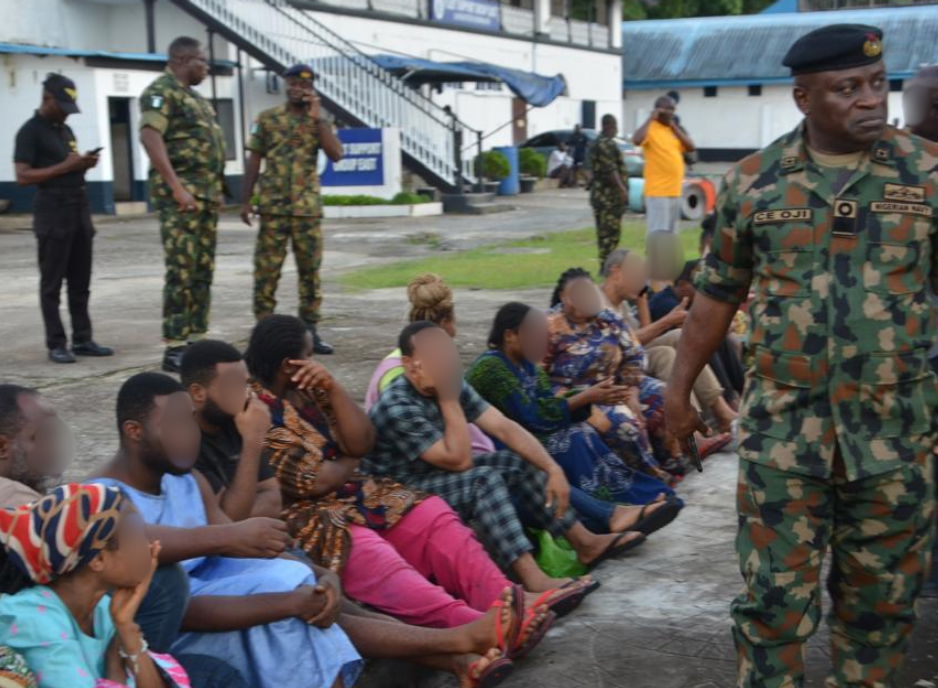News Update
17 Passengers Freed After 12 Days in Calabar–Oron Waterway Kidnap Horror

It was supposed to be an ordinary boat ride across the calm waters of the Calabar–Oron route, a journey many Nigerians take daily to avoid the pothole-ridden East–West Road. But by the end of that trip, 17 passengers disappeared, seized by pirates who turned a public waterway into a nightmare corridor of fear.
Also Read: Signs of Flooded Cars: How to Identify Water Damage

For twelve long days, families waited in silence. Phones rang unanswered. The sea swallowed voices and hope alike.
The Attack That Stunned the South-South
According to eyewitnesses, the Sea Express commercial boat left the Calabar terminal around noon. Halfway into the trip, near the creeks of Akpabuyo, armed men on two speedboats intercepted them.
“They fired in the air, shouting for everyone to lie down,” recalled a survivor still too shaken to be named. “They forced us into another boat and sped into the mangroves.”
From that moment, seventeen lives vanished into the maze of Cross River’s creeks, held hostage by pirates reportedly demanding huge ransoms from families.
The Silent Hunt for the Missing
Behind the scenes, the Nigerian Navy, backed by the Department of State Services (DSS) and local vigilantes, began a painstaking manhunt.
A senior officer from NNS Victory, Calabar, who spoke under anonymity, confirmed that naval patrols combed over 30 nautical miles of swamp and waterway terrain, cutting off food and fuel supplies to the kidnappers’ camps.
“The pirates were cornered. With no way out, they had to surrender the hostages,” the officer said.
Late Monday evening, October 6, 2025, the Navy announced the successful rescue of all 17 passengers, alive and without ransom payment. They were transported to the Naval Reference Hospital, Calabar, for medical and psychological evaluation.
Families Who Waited And Prayed
For relatives of the victims, it was nearly two weeks of sleepless nights.
One mother, Mrs. Alice Etim, whose son was among those abducted, told RoadKing.ng:
“Every day, I sat by the waterside, hoping to see the boat return. I didn’t sleep. When they said the Navy rescued them, I collapsed crying.”
Many of the rescued are artisans, traders, and students who depend on water transport because of the poor condition of the East–West Road, which connects Akwa Ibom, Rivers, and Cross River States.
When Land Fails, Water Becomes the Only Road
The Calabar-Oron waterway has become the South-South’s alternative highway, faster, cheaper, but increasingly unsafe.
With the East–West Road now almost impassable due to flooding, erosion, and neglect, thousands rely on ferries daily.
But security experts warn: “When government abandons roads, criminals take over rivers.”
Since January 2025, RoadKing.ng records show over 12 reported attacks on boats across Cross River and Akwa Ibom waters, many involving ransom abductions.
What the Navy and Government Are Saying
The Commander of NNS Victory, Commodore James Odili, confirmed that joint intelligence and local cooperation made the rescue possible.
“We did not storm their camp blindly. We used intelligence and surveillance. The abductors were forced to free the passengers because they had nowhere to run.”
The Cross River State Government has called for permanent naval presence across major jetties and pledged to invest in secure docking terminals for safer passenger loading.
But transport analysts argue that unless the federal government fixes the roads, Nigerians will keep risking their lives on dangerous waterways.
RoadKing.ng Investigation Insight
- Neglected road infrastructure drives Nigerians to unsafe transport alternatives.
- Waterway security patrols remain grossly inadequate, often only one naval craft per zone.
- Boat operators lack proper passenger manifests and safety protocols.
- Absence of coastal surveillance radar leaves Nigeria’s inland waterways exposed.
Until these issues are addressed, both roads and rivers will remain death corridors for the common traveler.
The RoadKing Verdict
The rescue is commendable. But it shouldn’t take 12 days, 17 families, and national panic to remind the government that transportation safety isn’t about building roads, it’s about protecting people who use them.













